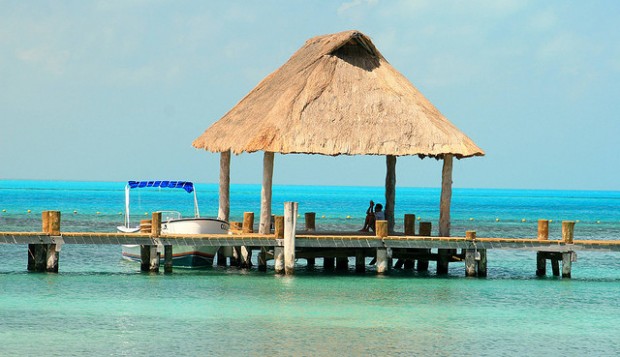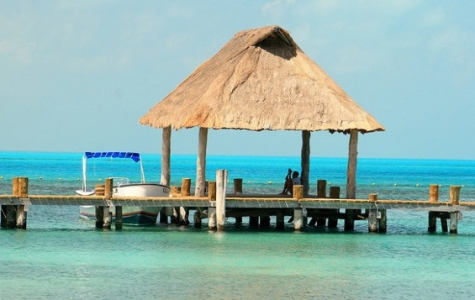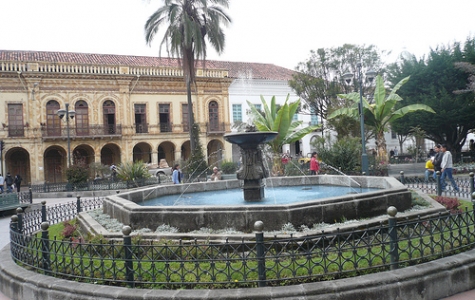
The decision to pack up and leave the familiarity of life in the United States in exchange for the freedoms of life in the tropics isn’t an easy one. Nor is it one to be taken lightly.
Although some online quizzes may proclaim the ability to pinpoint your ideal destination in under a minute, you might be just as well served by haphazardly throwing a few darts at a map…blindfolded.
Now please don’t misunderstand. A light-hearted quiz might be a fun diversion during those last few long hours of a Friday afternoon at the office. And, if you’re like so many other Americans who desire a better life but have no idea where to start, it might be a first step in the right direction.
However, relocating overseas takes a lot of consideration and careful planning, not to mention some quality time spent in your potential new home to make sure it’s a good fit for you.
Below are some initial factors you might want to consider when deciding if…no, make that…specifically what part of the tropics is right for you.
This is the number one question on most people’s minds when they’re considering relocating, so let’s just start there. When choosing a home in Latin America, cost is an important factor to consider. You may want to weigh out how the cost of living in various locations stacks up to that of the U.S or whether you would be able to get by on Social Security alone. You may find that some of your desired areas are more affordable than you think.
While the cost of living varies greatly from one country to the next, monthly expenses can run as low as $1,500 in countries like Panama, Ecuador or Nicaragua.
Moving to the tropics doesn’t mean just leaving your home. It involves relocating to a place far from friends, family, and the conveniences to which you’ve grown accustomed. So, how hard will it be to get to where you want to go once you’ve found your tropical home?
Things you might want to consider when choosing your new address should include factors like how close the city is to a major airport. And then, how long is the flight back to the States when you do get ready to visit? You might also want to think about the proximity of hospitals, schools, or a business district where you can work, if you so desire.
Healthcare is another factor to consider when making the ultimate decision of where to relocate. Like many other variables the quality and cost of healthcare can vary greatly from one area to the next.
But overall it’s quite good and seems to be improving. Many doctors have even spent time training in the U.S. and speak English well. Visit the Joint Commission International website for more information on accredited hospitals near your desired location.
There’s also the question of health insurance. While Medicare won’t be an option, there are other U.S. insurance policies whose coverage will extend overseas. In addition, most countries have their own national healthcare systems which are available to expats. Check in to all of the options available to you before you make any decisions.
Whether you’re looking for a beach retreat in a tropical climate or a mountain haven with four distinct seasons, a multitude of options awaits you. The same is true for those seeking rural relaxation or a bustling city center. This is where the importance of spending time in your desired area really comes into play. A lot of people like to vacation on the beach. Not everyone wants to live on one.
And, while owning your own island sounds magical, it probably isn’t right for someone who enjoys having access to a local convenience store that’s open all night. Think about what type of atmosphere it is that really makes you tick, and build your future around that.
So, maybe you’ve seen photos showcasing the hiking and surfing opportunities throughout Latin America, and maybe you’re worried because those activities don’t interest you. The attractions, events, cuisine, and culture throughout Latin America are as varied as the cities that house them.
There’s no need to force yourself to fit into a mold that doesn’t suit you. Do your homework, and research the types of activities available in the area you’re targeting. Find the place with the lifestyle that speaks to you. Whatever your interests or hobbies, you’re sure to find a place that will accommodate them. Who knows? You might even pick up a few more hobbies along the way.
One final question you might need to ask yourself before diving headfirst into another culture is the question of how easy it will be to acclimate to your new surroundings once you arrive. What are the people like? Is there already an established expat community? Are the locals welcoming to outsiders? Will I need to learn a new language? How readily available are the foods to which I’m accustomed?
No matter how many other aspects match your criteria, there is no substitute for being just plain old comfortable in your day-to-day life. As mentioned before, spend some time in your prospective new community. Get to know the locals, the climate, and the culture.
You’ll know it’s the right place when it already feels like home.

The decision to pack up and leave the familiarity of life in the United States in exchange for the freedoms of life in the tropics

Change is daunting. Change is difficult. It’s as good as a holiday, and mostly it’s for the better. If you’re looking for a change let’s

Cuenca, Ecuador Named Top Expat Destination for 2013 The world’s top retirement spot? In truth, it depends on you. There are many appealing options for